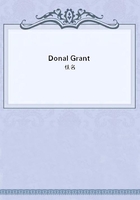
第19章
On Wednesday evening Donal went to The Morven Arms to inquire for the third time if his box was come. The landlord said, if a great heavy tool-chest was the thing he expected, it had come.
"Donal Grant wad be the name upo' 't," said Donal.
"'Deed, I didna luik," said the landlord. "Its i' the back yard."
As Donal went through the house to the yard, he passed the door of a room where some of the townsfolk sat, and heard the earl mentioned.
He had not asked Andrew anything about the young man he had spoken with; for he understood that his host held himself not at liberty to talk about the family in which his granddaughter was a servant. But what was said in public he surely might hear! He requested the landlord to let him have a bottle of ale, and went into the room and sat down.
It was a decent parlour with a sanded floor. Those assembled were a mixed company from town and country, having a tumbler of whisky-toddy together after the market. One of them was a stranger who had been receiving from the others various pieces of information concerning the town and its neighbourhood.
"I min' the auld man weel," a wrinkled gray-haired man was saying as Donal entered, "--a varra different man frae this present. He wud sit doon as ready as no--that wud he--wi' ony puir body like mysel', an' gie him his cracks, an' hear his news, an' drink his glaiss, an' mak naething o' 't. But this man, haith! wha ever saw him cheenge word wi' brither man?"
"I never h'ard hoo he came to the teetle: they say he was but some far awa' cousin!" remarked a farmer-looking man, florid and stout.
"Hoots! he was ain brither to the last yerl, wi' richt to the teetle, though nane to the property. That he's but takin' care o' till his niece come o' age. He was a heap aboot the place afore his brither dee'd, an' they war freen's as weel 's brithers. They say 'at the lady Arctoora--h'ard ye ever sic a hathenish name for a lass!--is b'un' to merry the yoong lord. There 's a sicht o' clapper-clash aboot the place, an' the fowk, an' their strange w'ys.
They tell me nane can be said to ken the yerl but his ain man. For mysel' I never cam i' their coonsel--no' even to the buyin' or sellin' o' a lamb."
"Weel," said a fair-haired, pale-faced man, "we ken frae scriptur 'at the sins o' the fathers is veesitit upo' the children to the third an' fourth generation--an' wha can tell?"
"Wha can tell," rejoined another, who had a judicial look about him, in spite of an unshaven beard, and a certain general disregard to appearances, "wha can tell but the sins o' oor faithers may be lyin' upo' some o' oorsel's at this varra moment?"
"In oor case, I canna see the thing wad be fair," said a fifth: "we dinna even ken what they did!"
"We're no to interfere wi' the wull o' the Almichty," rejoined the former. "It gangs its ain gait, an' mortal canna tell what that gait is. His justice winna be contert."
Donal felt that to be silent now would be to decline witnessing. He feared argument, lest he should fail and wrong the right, but he must not therefore hang back. He drew his chair towards the table.
"Wad ye lat a stranger put in a word, freen's?" he said.